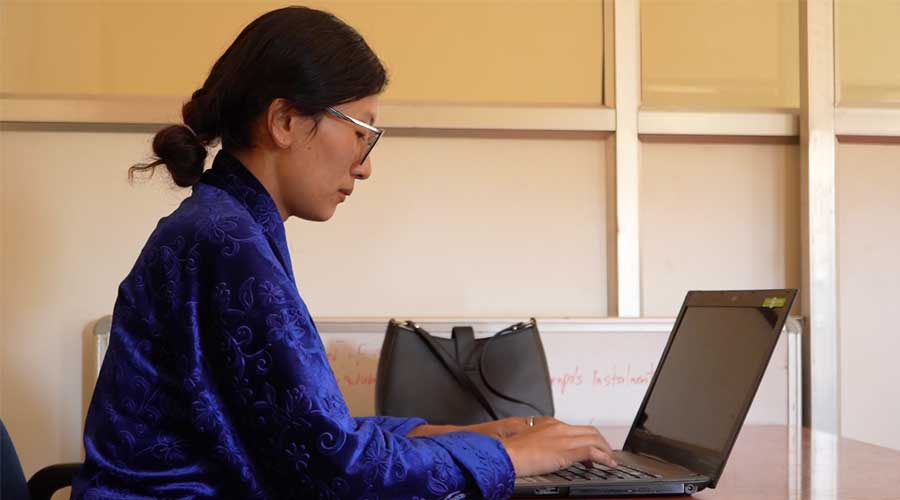
Bhutanese media is going through an unprecedented time. It has become harder for practising journalists to pursue impactful stories because of the many layers bureaucrats have devised to access information. By the time journalists get the information, it becomes either stale or irrelevant. This outdated and half-baked news is then passed to the news consumers whose right to information is denied.
“On a personal level, I think it affects a lot because mainly due to the timeliness of the information. And even if you get the information, it is delayed that we no longer need the information or it gets outdated. So, as a general citizen, it really makes it hard to make decisions,” said Sangay Younten, a student of Sherubtse.
“We rely for information on media outlets such as BBS, Kuensel and the Bhutanese. For example, during the COVID-19 pandemic, we heard about the outbreak of the virus from Wuhan. We expected preventive measures but we got them wrong. Back at home, my mother said we need to drink garlic water. From my personal experience, we got the information late,” added Rinchen Tshomo, also a student of Sherubtse College.
Many offices in the country have established either a media unit or appointed a focal person but this has not improved the environment for journalists. The need for these designated officials to get permission and discuss with their supervisors takes a few more days. Journalists claim this long process eventually delays the news.
The media council also received complaints concerning this issue. The council wrote to about seven offices last month. However, according to Needrup Zangpo, the chairperson of the Media Council, only two offices got back assuring their support:
“Our public offices have media officers who are mandated to share information with the media and speak to the media. But the media officers in our public offices and institutions have not been successful as we have expected them to be. So, it would be very good if our public offices could streamline the way in which public information is shared with the media. That streamlining will happen if they relook the role of media officers.”
Damchoe Pem, a Senior Reporter with The Bhutanese says media officers can barely serve their purpose. “When we ask them for information, they tell us to send an e-mail. After sending the e-mail, they fail to respond. They never respond to our follow-up calls. Sometimes it takes months to get the information. And that delays in disseminating the information. I feel that it is of no use of having media officers when they don’t provide us with information,” she said.
There is growing frustration among journalists in the country. The silence for an answer from many offices is getting louder and more infectious. While there is an improvement in media freedom as per official reports, the ground reality contradicts this.
“Access to information has been very tight, especially from ACC, OAG, courts and RCSC. They said they will have a media focal but that is not really helping because I don’t know how long it takes for the media focal to streamline the questions to the required authorities. So, it is not serving its purpose,” said Yeshey Lhadon, the Editor/Reporter at The Journalist.
She says the earlier arrangement of seeking an appointment was better than the current one where everything has to be routed through a media officer.
According to a survey done by the Journalists’ Association of Bhutan recently, access to information has become worse now than in previous years. The respondents were all journalists in the country.
However, there is optimism that this phase will soon pass. The Media Council believes that the two offices writing back to the council assuring their support in itself speak volume. Moreover, the council says the caution among the civil servants is due to the ongoing public service reforms. He says the environment will get better once the reform is over.
Kinley Dem









